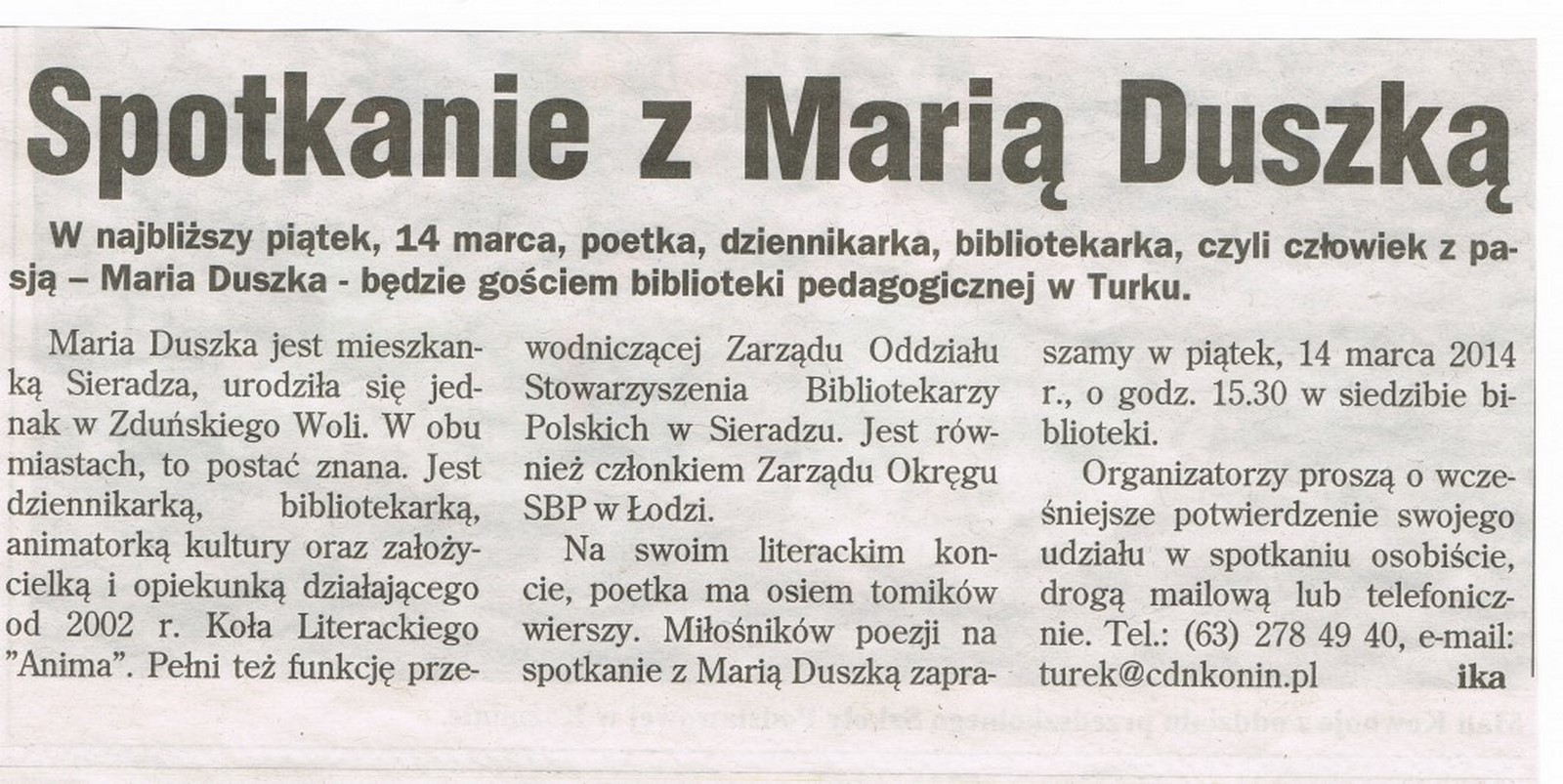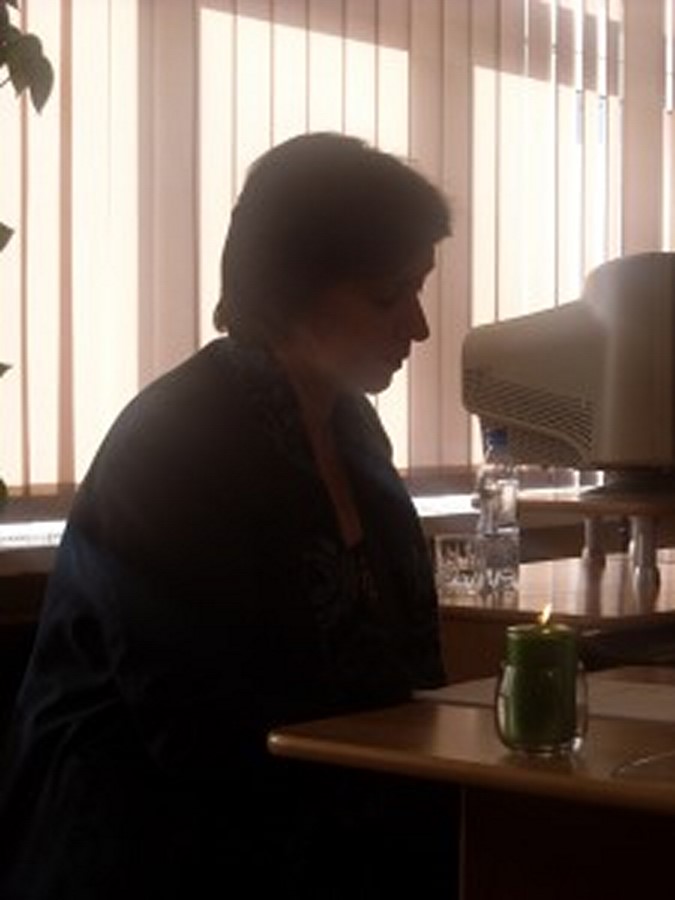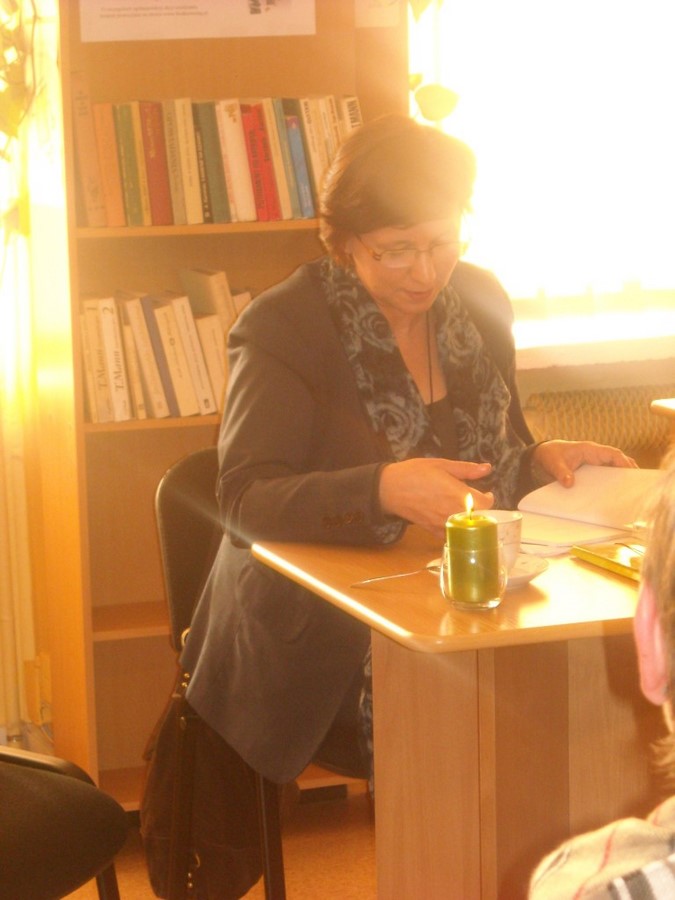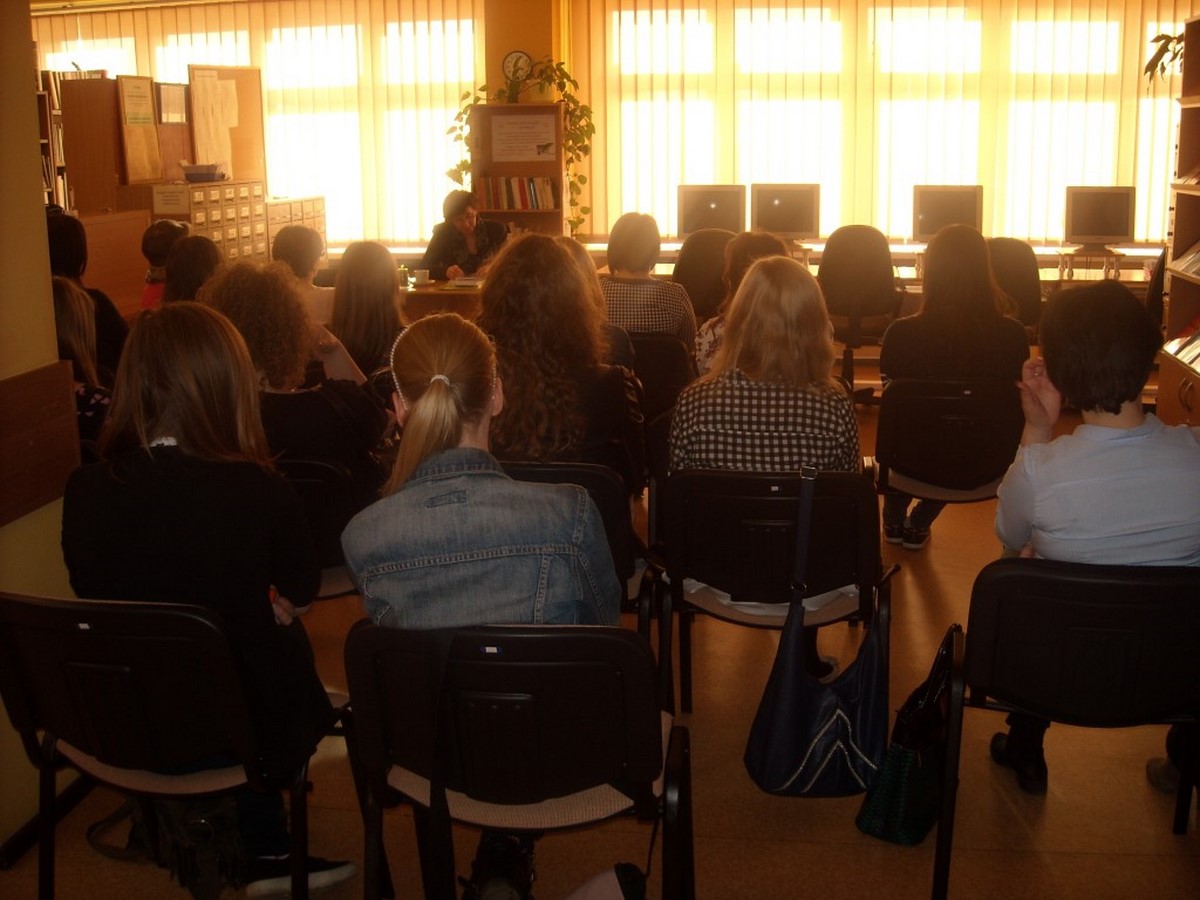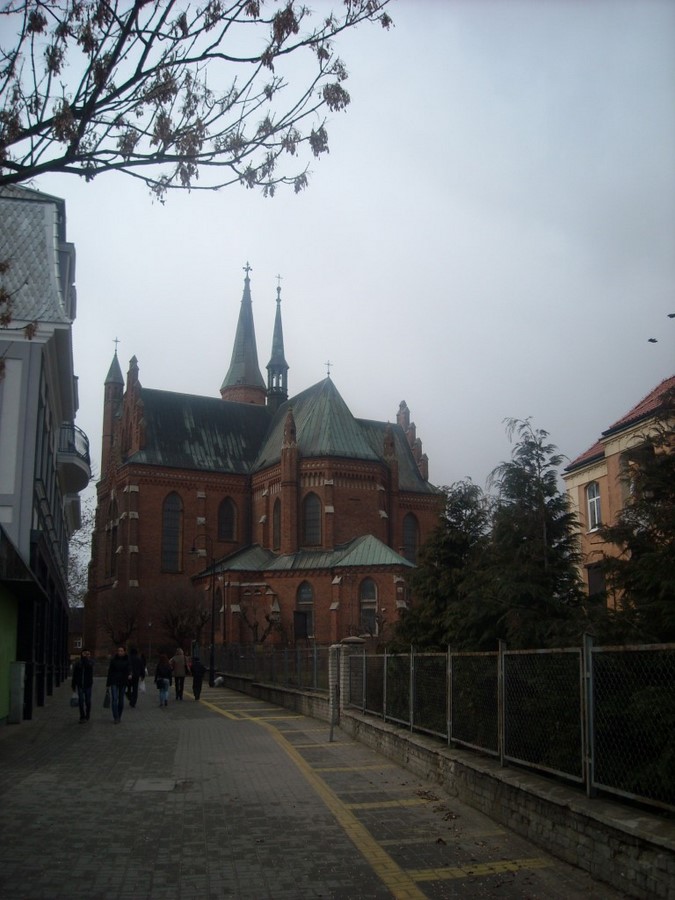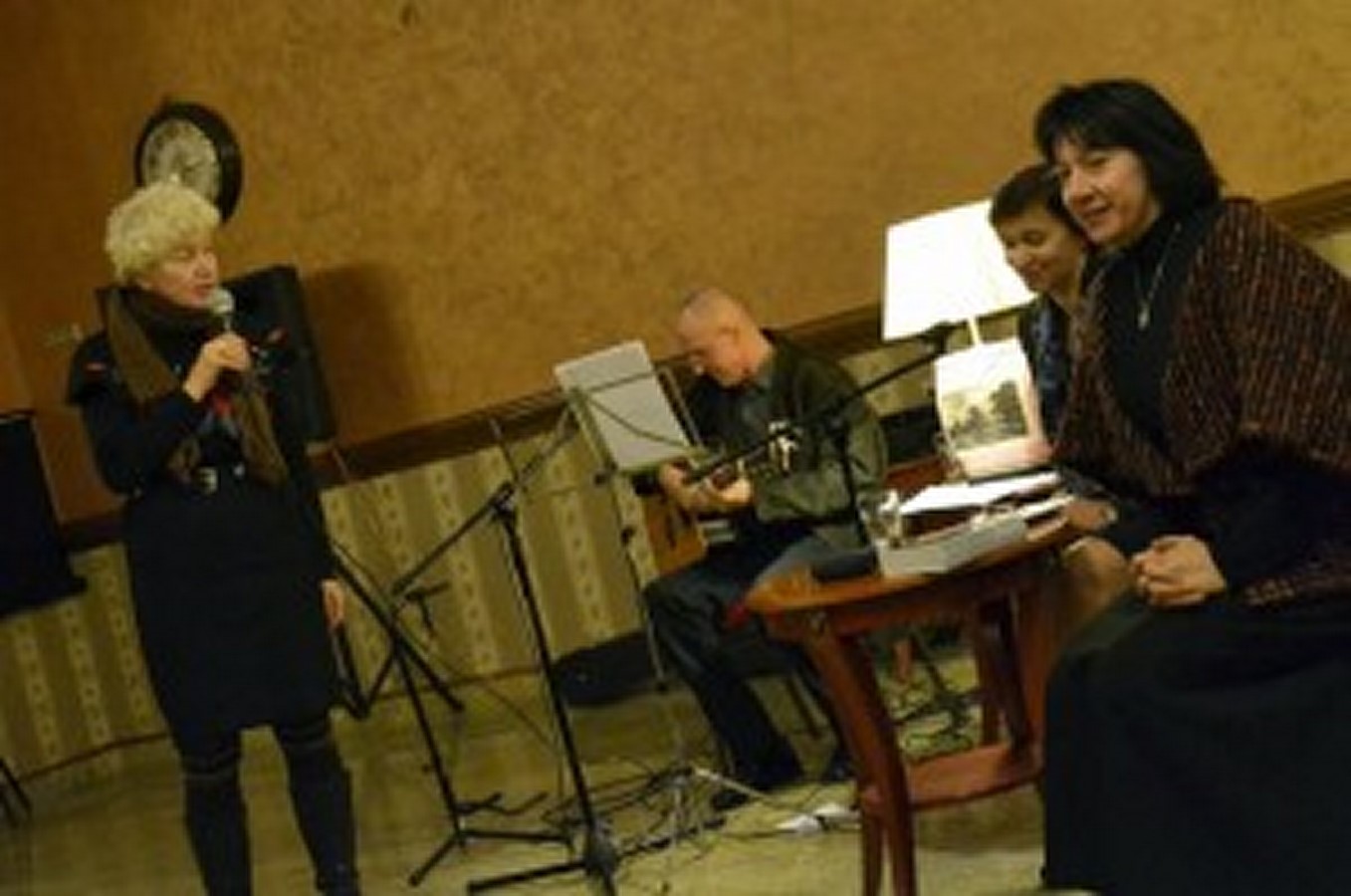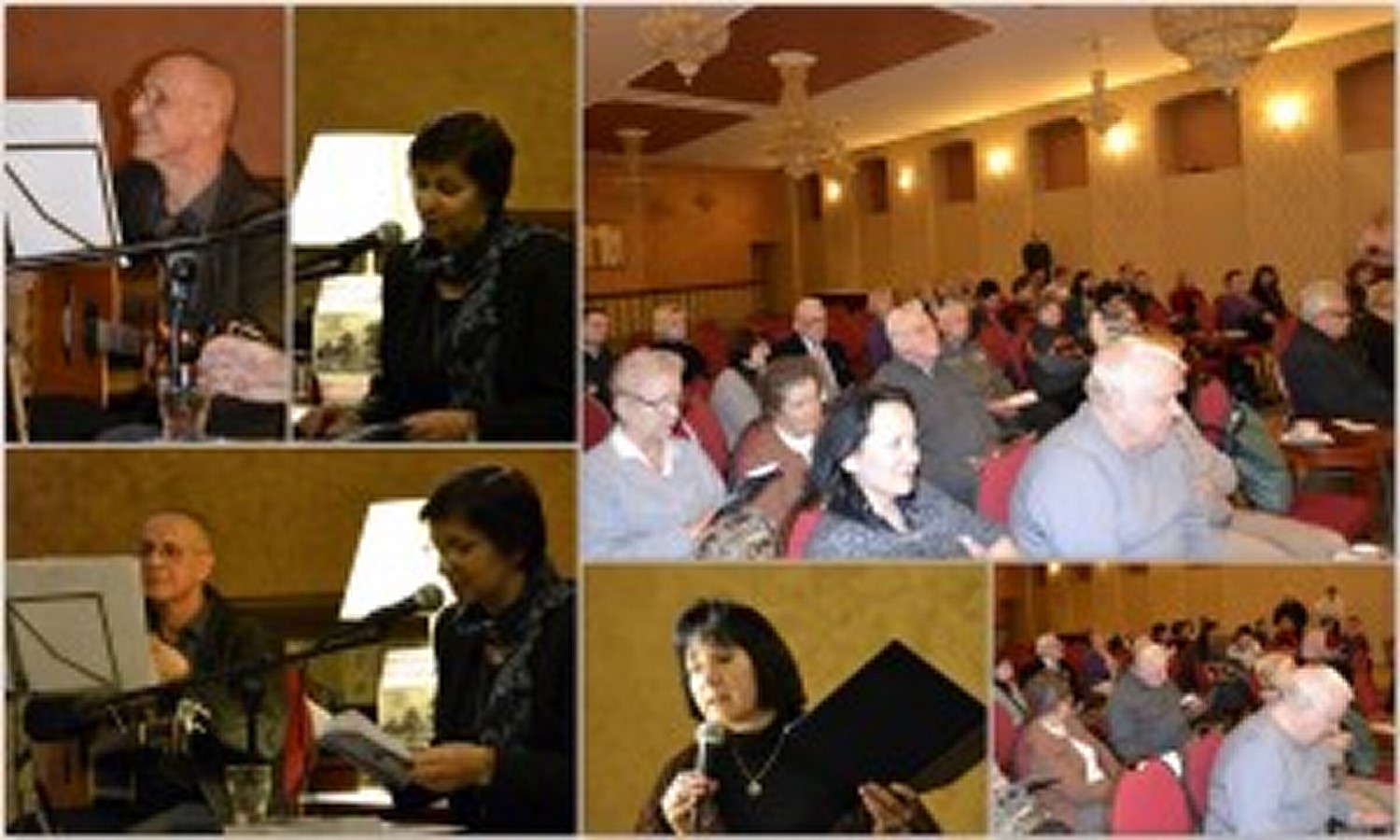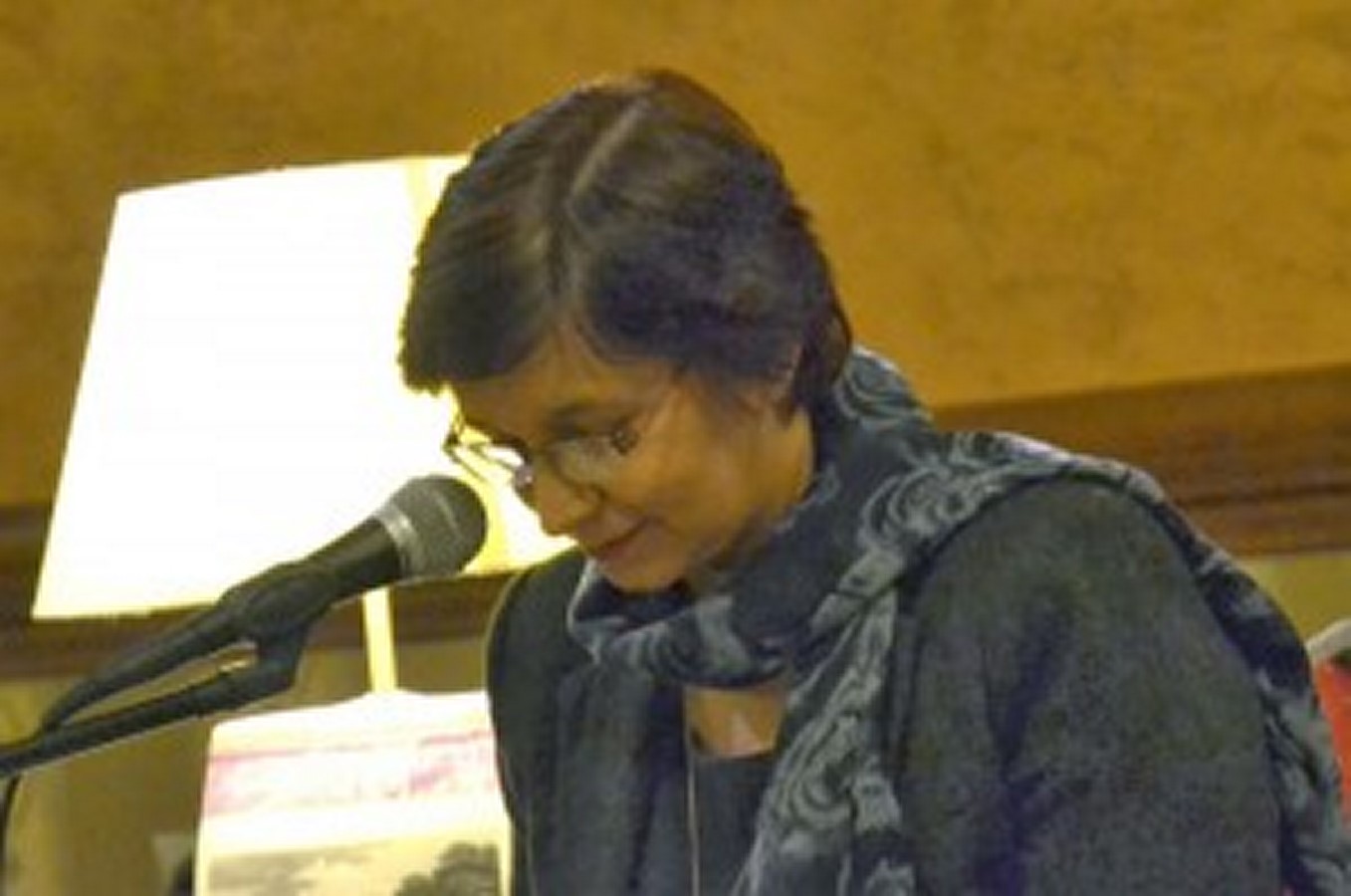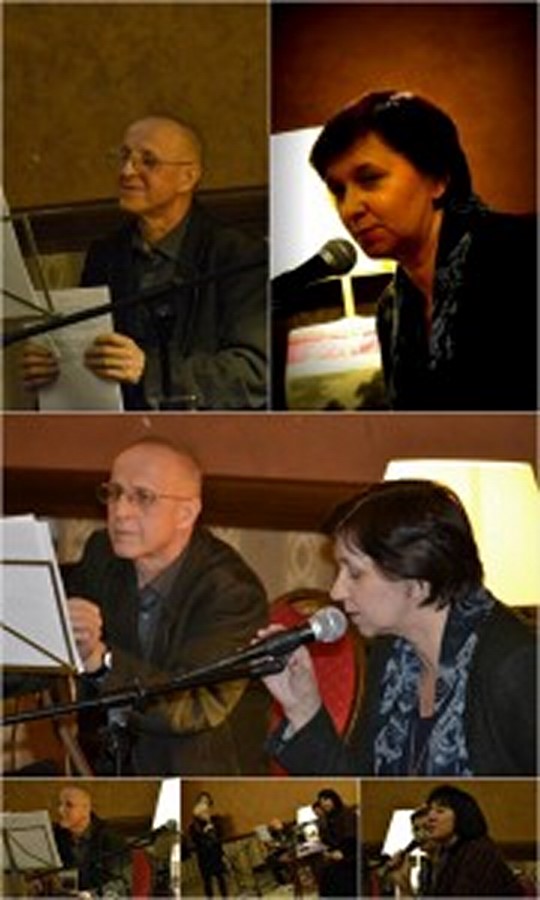Tym razem przełożony na English cały tomik pt. „Galeria Świat”.
THE GALLERY WORLD
(AUTHOR) Autorka : Maria Duszka, Ludowa Spółdzielnia Wydawnicza 2007
x x x
we still know nothing
we are like children
standing at the doorstep
x x x
today I will visit you
my heart is above me
like a lark
THE QUESTION
For Sławek
we parted without words
time accustoms itself to loneliness
only when I come here
birches
jasmines
grass and mulleins
are asking
what I am doing here
without you
x x x
standing by the window
I surrender to space
I stop the time
x x x
before I met you
I liked only
that birch wood
the meadow
the dark sappy strip of alders
and the tender air above them
they sufficiently fulfilled
my need
to admire something
and you came
obscuring the trees
the meadow
with peace and indifference
equalling theirs
you accept my love
x x x
I was at the bottom
many times
I was deep
then saved by the Lord
He sent for me
when I was at the bottom
x x x
I lie in the forest
birches bless me
with their branches
Małyń 1997
x x x
the first love
like a lightning
shows an open sky
then darkness
for long
x x x
for heart anxiety
a prayer
like a sleeping pill
or
a thought of your hands
so gentle
so safe
x x x
„Everything is more and more grey now… „
K.
the birds sang
their „carpe diem”
in burning trees
that autumn
now
when you are absent
more often
I do not approach the window
urgently I do anything
not to hear their singing
to forget
that you usually were here
at that time
x x x
„What is smaller or bigger than a hand touch…”
Paul Eluard
it’s been a year
you would come cold in the snow
asking
what did you do with me
and you – with me…
I watched the night lamp
x-raying your eyes from aside
we would listen
„do not be afraid of love…”
I would observe you come
and go
it’s been a year
with the hand touch
as clean and light as snow
you wake light in me
x x x
A village fool
sits at his mother’s grave
taking his knees in hands
swinging
he repeats:
„mum in ground
ground in mum…”
x x x
you tell me
you want everything
and I just want to live
in your heart
as if it were a safe home
x x x
when sitting facing me
you said „ as the talk to her…”
I was sure
you overestimated your and my abilities
„propheting the coming of summer thunder”
I learned all your good
and your evil
wisely did I reject
meetings and telephones
I destroyed and threw out
all the little things
you gave me
this town is more and more full of you
I am like a leaf weakly sticking to the branch
the hurricane pushes me in your direction
x x x
sometimes I envy
the dog
which is petted by you
x x x
a prayer:
pushing off the darkness
x x x
you wise astronomer
why did you share with us
your knowledge
that the earth is
a revolving
sphere
in the sky abyss
we would be calmer
having
under our feet
a motionless
flat sphere
of undefined thickness
(even if protected
by Atlas’ shoulders)
x x x
the most faithful reflection of the world
is not the face
of evil
or good
nor is it the face
of the one
who knows
almost everything
but
it is the face of an idiot
x x x
in my wardrobe I hanged
your jacket
all my clothes
want to be close to it
x x x
when we are to die
(though earlier we said
it was not worth living)
the world takes colours
and clear contours
like a summer in August
and all the moments
which were
and which still could be
are suddenly highly valued
x x x
birds sing
in the burning branches of trees
summer is gone
x x x
to wash off you from myself I use the hands eyes lips
of other men I take trips with them to anywhere
send them letters and smiles dye my hair for them
which turned grey beacuse of you and when you are back
I mock you and offend you with my last (which one?)
farewell letter
no progress in forgetting
x x x
trees are
what was left for us
from paradise
x x x
when you met me
the house was filled
with great silence
silently we listened to the prophecy
„we will wake up nestled…”
today we sit among grass
I listen to your monologue:
the best poetry
I know
your hands
and herbs
so close
far ahead of us
a town
kids playing kites
„ at the summer noon…”
x x x
grey colour has many shades
I noticed it recently
in your eyes
x x x
autumn is drowned in rain and fog
you do not leave my thoughts
I drown peacefully
in your eyes
in your hands
x x x
you tell me
you want everything
for me it is enough
to look through the window
on your side
and think you are here
x x x
after twenty two years
from the beginning of our love
we talk about men
who are running double life
they have wives and mistresses
(they can afford it)
I ask
would you like to live
like they do
„I think I would like you doubled”,
you answer
x x x
a lift to heaven
to your flat
on the eighth floor
x x x
common women
give birth to children
God muddles up CVs
of poetesses
so that they give birth
to poems
x x x
every evening
I report by phone
to you all my actions
ups and downs
I start from „ I got up at 7 AM…”
you listen
and then you say
„I also got up at 7 AM today
I went to the bathroom
and went to sleep”
it’s been years since I cannot decide
which one of us is right
x x x
I like to know
the place I am standing
even if it is
a bottom
x x x
June is
like
being eighteen years of age
„TO THOSE WHO GIVE MUCH WILL BE GIVEN”
„ I always work
as best as I can
why then I always
suffer from paucity”,
she complained to God in her prayer
next day she was given a reply
the best reply of all possible
„be generous for yourself and for the others”
x x x
stop
look through the window
(there is
nearly always
a poem
down there)
NEARLY EVERYBODY TURNED THEIR BACK
it was a beautiful October
Szymborska won the Nobel Prize
every day I was visited
by a drunk criminal
he claimed to love me
and if I were not with him
he would kill me and himself
I advised him to start off killing from himself
he seemed not to have noticed the joke
the policemen said
they could start an action against him
only when he killed me
a VIP from cultural department said
„no wonder you face those problems
when you write such poems”
one of my man brothers said
„you have count only on yourself”
the man of my life
of whom I wrote about
my best poems said
„ I am not involved
as I am here
and it happens there”
and God made me aware
just then
that He wants gratitude from me
for the life
as it is
I live
I am grateful
I worship my loneliness
PALM SUNDAY, 2005 AFTER THE BIRTH OF CHRIST
„ with that He bowed His head
and gave up His Spirit”
we kneel
the man in front of me
yawns
THE FREE MAN
he pushed his wheelbarrow with cardboard
his eyes were beyond that
the ragamuffin with charisma
x x x
„ you who wronged a simple man
bursting into laughter at the crime”
Czesław Miłosz
in 1980 they said
„we fight for workers’ dignity”
in 2004
to the unemployed
who came
for a job interview
enters a little director
of a small company and says
„ I need five himbos
and five cows…”
x x x
Let’s fight one another,
Poles
our neighbours
(enemies)
already
(again)
are rubbing their hands
x x x
you are getting sober:
hold me tight
coz I feel
I am becoming
a human garbage
x x x
why do we multiply?
why do we produce weapons
on our planet Earth?
THE CICUTA OF KNOWLEDGE
he said before his death
„life is so
that those
who take it from us
are our benefactors”
then,
Socrates,
what
with our parents?…
x x x
my mother delivered me
to the world
my mother is good
gentle
and simple
like a child
I cannot blame her
that she turned me in
to the world
Małyń 1986
LOVE AT FIRST SIGHT
we talked
in a distance from us
a little four-year-old boy
wearing a yellow/navy-blue jacket
stopped
looking at you,
a man approaching fifty,
he said „come here”
we did not stop talking
after a while the boy strongly repeated
„come here”
„why should I come to you?”,
you asked
„coz I have only my mummy”
AFTER 20 YEARS OD LIVING IN SIERADZ
a Sunday afternoon
acacias and clovers in full bloom
their smell takes me
to a different time and place
causing pain
I will never be „from here”
THE GALLERY WORLD
snow flakes
tree leaves
none of them is repeated
God is a perfect artist
x x x
I am left at home alone
submerged in silence and solitude
after an hour
I feel like phoning you
to tell you
how well I feel at home alone
x x x
he is bright
gentle
and true
as a touch
of a birch twig
LOVE
I have not seen you for many days
you are standing now
facing me
like a sea
I am standing facing you
helpless
x x x
before you turned up
I had dreamt off your eyes
and all the heaven
of years shared with you
x x x
years rolling on
round and empty
I wait for a few summer days
a touch of your lips
must suffice
for the next year
or for good
the blood in my veins
changes
into waiting
pulsating
and turning me
in your direction
nothing better
than your arms
x x x
you gave me love
like a storm
like a sharp knife
you gave me love
full of light and air
x x x
I wake up
at four AM
in my thoughts a trace of a prayer
from before going to sleep
so as not to suffer
from each moment
of your absence
at four AM
an answer for a prayer comes
reminding me some lines of a song:
„ which one of our loves
is just
the last one…?”
x x x
so many times
I kissed this love goodbye
it was covered by yellow leaves
it was parted by our time
like a fog
one summer
we could not find ourselves
and thought
nothing could save us
but suddenly
dry leaves leave it
the fog is gone
our hearts again high above us
and our love is green again
x x x
I told you on the phone
I am bored with talks to you
(I lied,
you have been silent for two weeks)
you see
I am a clever student
in your school
of dealing blows
x x x
he looked through the window
in a very foggy morning
„oh, the world is gone…”
x x x
meeting you accidentally
as if God
petted me on the cheek
x x x
I am woken up
by a steady rainy blues
an autumn morning
x x x
a day in my travel
I do not open a book
I read the world
x x x
the Lord has done
great things for me
He gave me a sandy road
in a field with birches
a blackthorn
and wild roses
a wanderer with eyes
of a clear sky
a cordial arnica
and field pears
I can go where
only sky
field and wind exist
x x x
in memory of people close to me
and yet it seemed
they would last forever
in that chamomile yard
in that warm house
in that safe bed
they are blown out by time – one by one
A MORNING
in memory of Zbyszek Dominiak
I am afraid to open my eyes
I am afraid to open the curtains
the world is a scorpion
x x x
when cherries bloom
the Japanese
do not work
they celebrate a holiday
even in big town centres
they sit for several days
under the blooming trees
feeling no pity for elapsing time
they sit until cherry petals are gone
filled up with the beauty they go back to work
at my housing development
an old plum orchard
was cut down unnecessarily
the neighbours say
it will be order here at last
we will not be a second Japan
